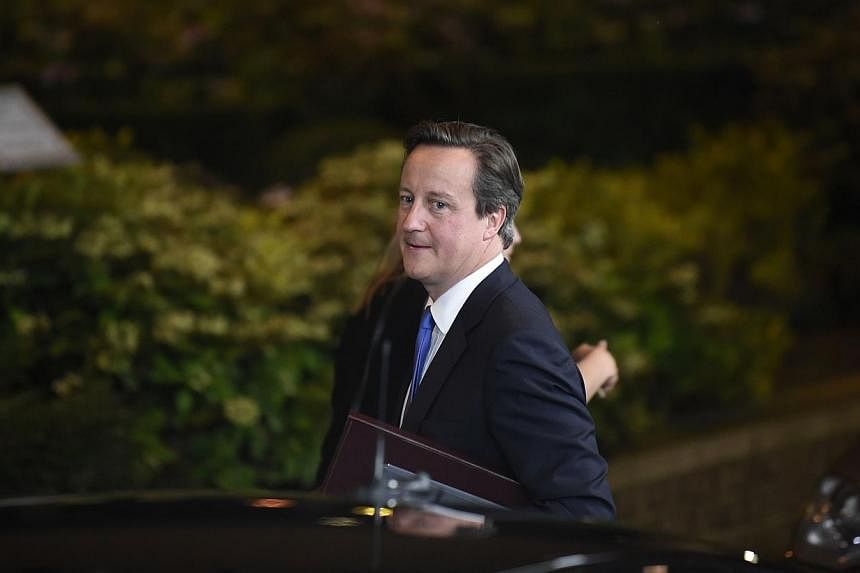LONDON (AFP) - British Prime Minister David Cameron raised the prospect on Saturday of fresh EU sanctions against Russia over the Malaysian plane crash, saying the West must "fundamentally change our approach" unless Moscow alters course in Ukraine.
"Russia can use this moment to find a path out of this festering, dangerous crisis. I hope it will do so. But if that does not happen then we must respond robustly," he wrote in an article in the Sunday Times.
Mr Cameron said that if it was confirmed that Flight MH17 was downed by a surface-to-air missile fired from an area held by pro-Russian separatists in Ukraine, then Moscow should be held accountable.
"If it is the case, then we must be clear what it means: this is a direct result of Russia destabilising a sovereign state, violating its territorial integrity, backing thuggish militias, and training and arming them," Mr Cameron wrote.
"We must turn this moment of outrage into a moment of action. Action to find those who committed this crime and bring them to justice. But this goes much wider than justice."
The Prime Minister continued: "If President (Vladimir) Putin does not change his approach on Ukraine, then Europe and the West must fundamentally change our approach to Russia.
"This is not about military action, plainly. But it is time to make our power, influence and resources count."
His comments echo those expressed in a telephone call earlier on Saturday with Prime Minister Mark Rutte of the Netherlands, the country from which the Kuala Lumpur-bound Malaysian Airlines flight took off on Thursday.
Of the 298 people who died, 192 were Dutch and 10 were British.
Mr Cameron and Mr Rutte "agreed that the EU will need to reconsider its approach to Russia in light of evidence that pro-Russian separatists brought down the plane," a spokesman for Mr Cameron's Downing Street office said.
The plane tragedy came less than a day after the United States unleashed a new round of punishing sanctions against some of Russia's most important energy and military firms.
But the European Union - many of its member states dependent on Russian gas - took the far less punitive step on Friday of curbing some future investments in Russia.
"For too long, there has been a reluctance on the part of too many European countries to face up to the implications of what is happening in eastern Ukraine," Mr Cameron wrote.
"Sitting around the European Council table on Wednesday evening, I saw that reluctance at work again."
He said there must be immediate access to the crash site, a ceasefire in Ukraine, a full investigation into what happened - and he demanded Russia halt supplies and training for the separatists.
Earlier, Foreign Secretary Philip Hammond expressed frustration with Moscow at the difficulty that international monitors were having accessing the crash site.
He summoned the Russian ambassador to the Foreign Office, where a senior civil servant made London's views clear.
Mr Cameron also agreed in a call with Australian Prime Minister Tony Abbott to use the United Nations Security Council to push for "swift and unhindered access" to the crash site.

